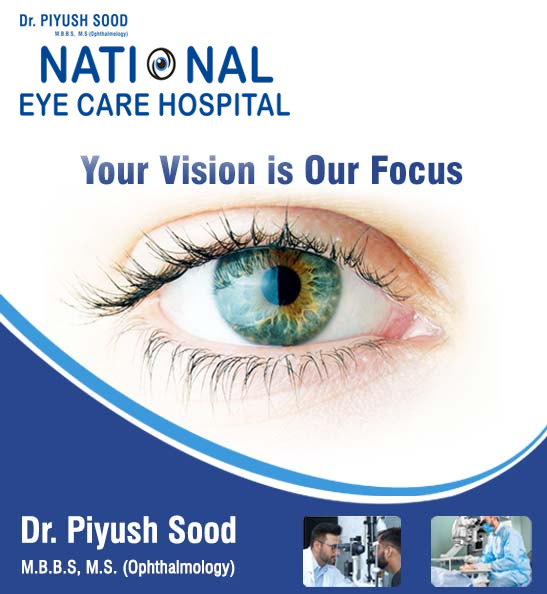Eye Doctors in Andalusia: Relied On Professionals for Vision Health
Eye Doctors in Andalusia: Relied On Professionals for Vision Health
Blog Article
Is Refractive Surgical Treatment Right for You? Elements to Consider for Better Eyecare
In the realm of eye care, the decision to undergo refractive surgical treatment is a substantial one that requires thoughtful factor to consider. As individuals seek clarity and freedom from the restrictions of corrective lenses, numerous elements come into play when figuring out the viability of such a treatment. From the ins and outs of one's ocular health and wellness to the details of everyday habits and individual assumptions, each facet holds value in the broader landscape of refractive surgical procedure candidacy. By reviewing these crucial elements with care and accuracy, a clearer path in the direction of educated decision-making arises.
Eye Health And Wellness Assessment
When considering refractive surgery, an extensive eye wellness analysis is important to assess the suitability of the procedure for every individual. neurologist andalusia. This evaluation includes a collection of evaluations and examinations conducted by an eye care specialist to identify the general health and wellness of the eyes, the visibility of any kind of underlying problems, and the security of the refractive error
During the examination, numerous variables are taken into account, such as the client's clinical background, existing eye prescription, corneal thickness, pupil size, and tear movie quality. These assessments aid to determine any kind of contraindications to refractive surgery, such as corneal abnormalities, cataracts, or without treatment eye infections. Furthermore, the examination helps to handle client expectations relating to the potential results of the surgical procedure based on their unique eye characteristics.
Inevitably, the eye wellness examination is essential in making sure the safety and security and performance of refractive surgery, as it offers important understandings right into the individual's eye health status and assists figure out the most appropriate therapy alternatives for accomplishing optimal visual results. (neurologist andalusia)
Lifestyle Evaluation
A complete way of life evaluation is important in identifying the suitability of refractive surgical procedure for a person's aesthetic modification demands. Way of life aspects such as profession, pastimes, and everyday activities play a vital duty in the decision-making procedure pertaining to refractive surgical treatment. For circumstances, people with professions that include a high degree of physical task or exposure to environmental elements might have various visual needs contrasted to those with sedentary desk work. Recognizing exactly how a person's way of life may impact their vision post-surgery is crucial for taking care of assumptions and ensuring ideal end results.
Moreover, lifestyle practices such as sports involvement, outdoor activities, or even skin care routines can influence the recovery procedure and total success of refractive surgery. As an example, individuals that engage in get in touch with sports may require to take additional safety measures to safeguard their eyes during the recovery period. Furthermore, people with extensive sunlight direct exposure may call for extra post-operative care to stop issues. By performing an extensive lifestyle evaluation, eye care experts can customize their recommendations and therapy plans to fulfill the unique needs of each person, eventually resulting in boosted visual results and fulfillment.
Assumption Placement

Establishing reasonable expectations involves detailed pre-operative discussions between the patient and the eye doctor. The surgeon ought to transparently communicate the potential threats, benefits, and constraints of the treatment (eye center andalusia). Individuals need to comprehend that while lots of people attain 20/20 vision or better following refractive surgical treatment, some might still need glasses for specific activities like reading or driving at night. Handling these expectations assists avoid disappointment and discontentment post-surgery, causing a more positive general experience for the patient.
Danger Analysis

Variables that may boost the danger of difficulties consist of age, particular clinical conditions like autoimmune conditions, unsteady vision prescription, thin corneas, and site here impractical individual assumptions. In addition, choosing a competent and knowledgeable doctor, adhering to pre and post-operative care instructions vigilantly, and divulging any pertinent clinical history can help reduce risks.
To reduce the probability of issues, eye doctors perform extensive pre-operative assessments to identify any kind of contraindications to surgical procedure. They additionally go over the potential threats and benefits with patients throughout the assessment procedure. By participating in open interaction and shared decision-making, both the patient and the ophthalmologist can collaborate to determine if refractive surgical treatment is the right selection based on private risk accounts and desired outcomes.
Appointment Significance
Taking into consideration the essential function of informed decision-making in examining threats and possible difficulties in refractive surgery, the appointment process holds considerable relevance in directing patients in the direction of optimal results. During the appointment, the eye doctor reviews the individual's eye health, refractive mistakes, and general suitability for surgical treatment. This initial evaluation is important in establishing the most appropriate procedure for each individual, considering elements such as corneal density, pupil dimension, and existing eye problems.
Additionally, the consultation functions as More Info an opportunity for individuals to review their expectations, worries, and any inquiries they may have regarding the surgical procedure. Clear interaction between the patient and the surgeon is necessary to ensure sensible assumptions and a detailed understanding of the possible dangers and benefits entailed.
Additionally, the appointment enables the specialist to clarify the different medical alternatives readily available, their corresponding outcomes, and the post-operative treatment required. This detailed discussion encourages people to make knowledgeable choices regarding their eye treatment, bring about better contentment and outcomes post-surgery.
Verdict
To conclude, people considering refractive surgical treatment needs to undergo an extensive eye wellness analysis, analyze their lifestyle habits, align their expectations with potential end results, analyze the connected risks, and prioritize assessments with eye treatment experts. These variables play an essential function in figuring out the viability of refractive surgical procedure for each individual, guaranteeing optimal outcomes and complete satisfaction with the procedure.
Clients thinking about refractive surgical treatment commonly have high assumptions relating to the results, expecting perfect vision without the need for glasses or contact lenses. While refractive surgical procedure can substantially boost vision and minimize reliance on visual aids, it is crucial for patients to recognize that outcomes may vary based on individual variables such as the degree of refractive mistake, corneal density, and overall eye health.
By involving in open communication and shared decision-making, both the ophthalmologist and the patient can function with each other to identify if refractive surgery is the appropriate option based on individual threat accounts and desired outcomes.
Taking into consideration the important role of educated decision-making in examining risks and possible problems in refractive surgery, the examination procedure holds considerable relevance in assisting patients in the direction of optimal results. During the examination, the ophthalmologist assesses the person's eye health, refractive errors, and general suitability for surgery.
Report this page